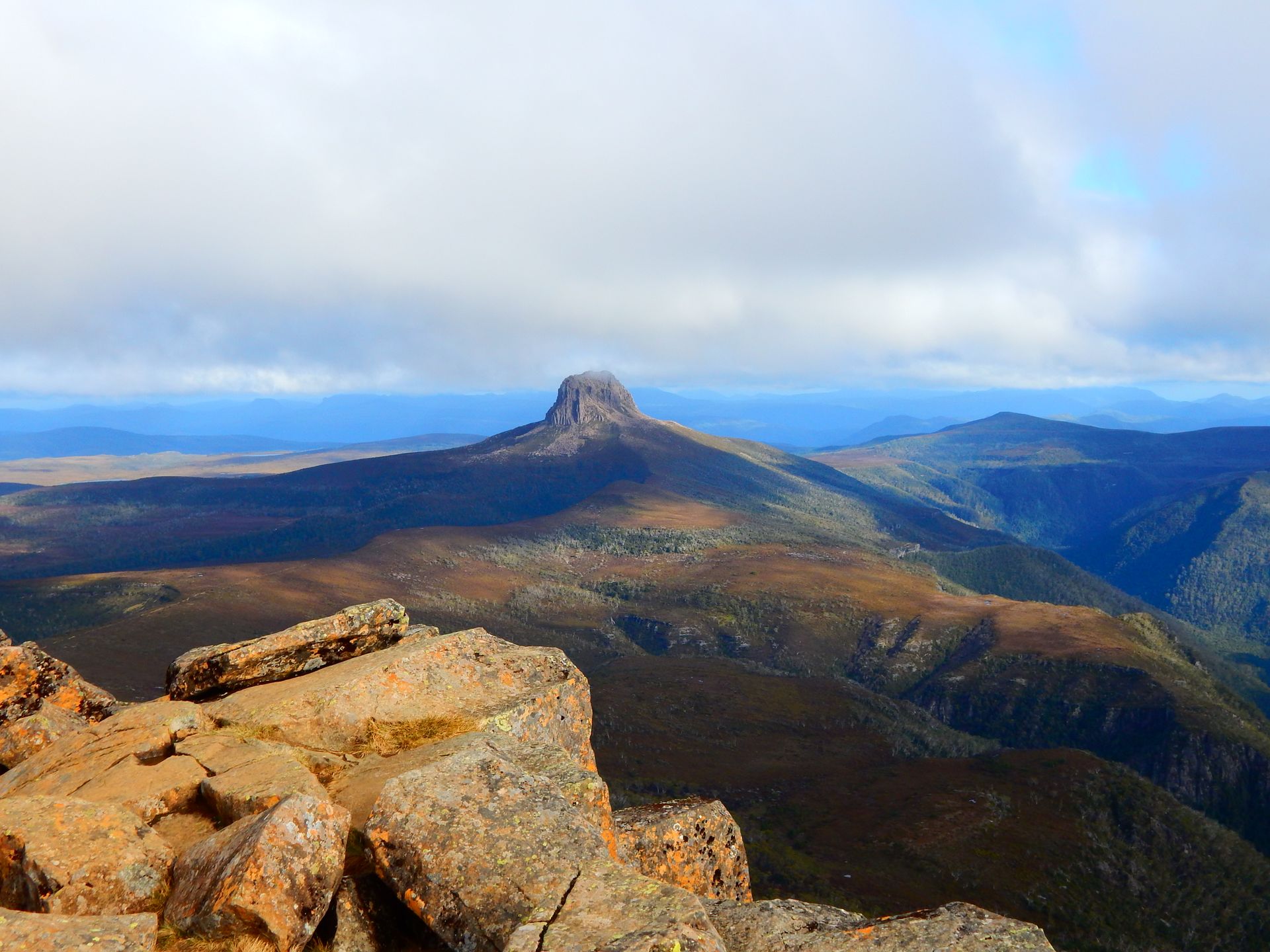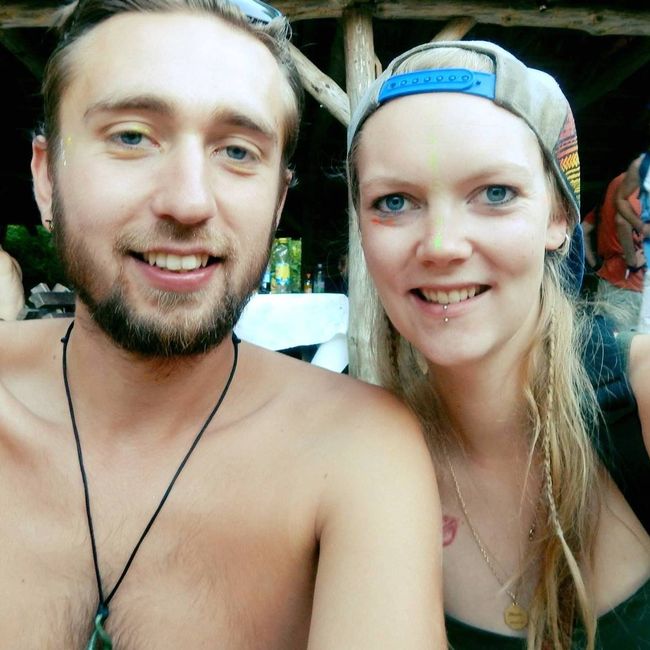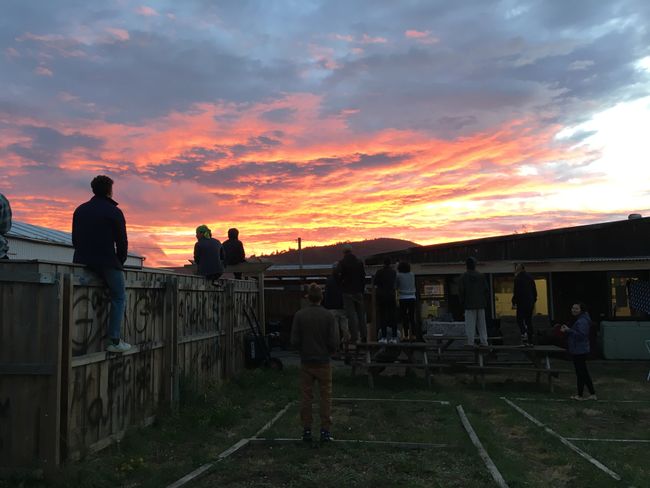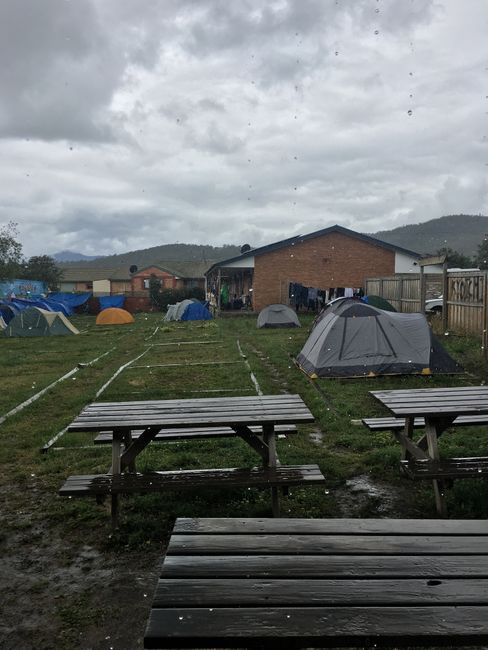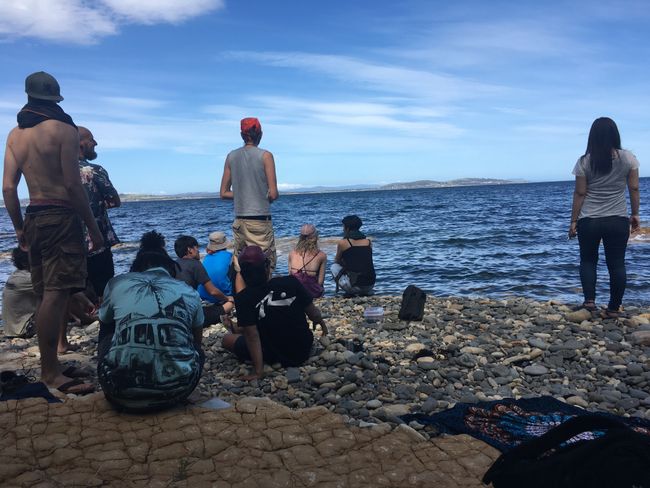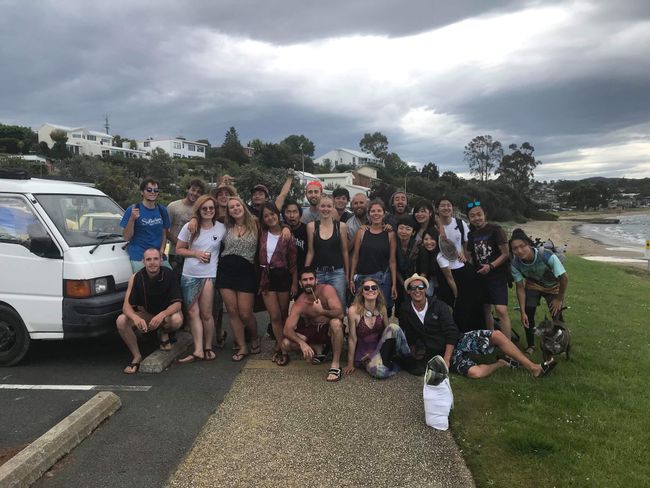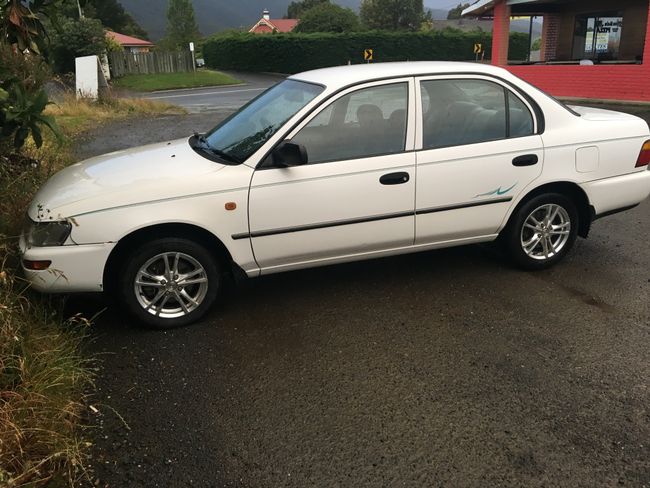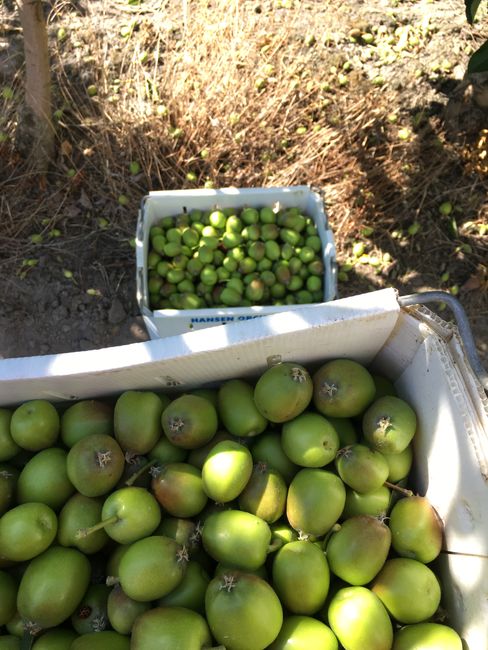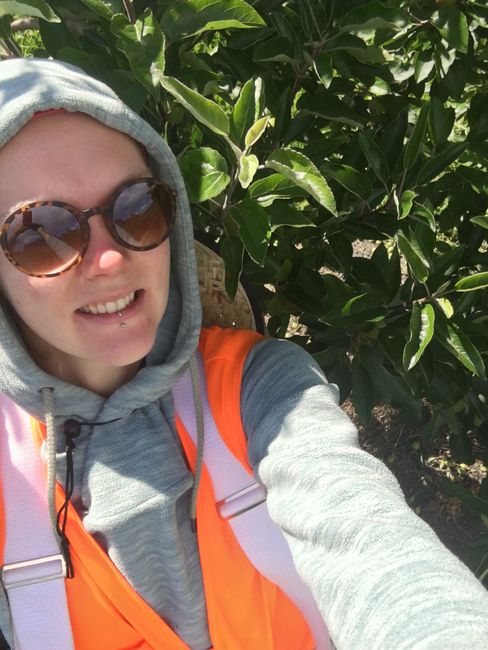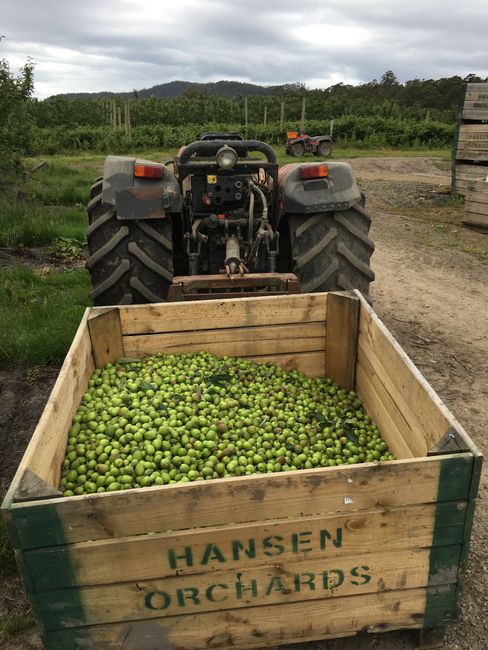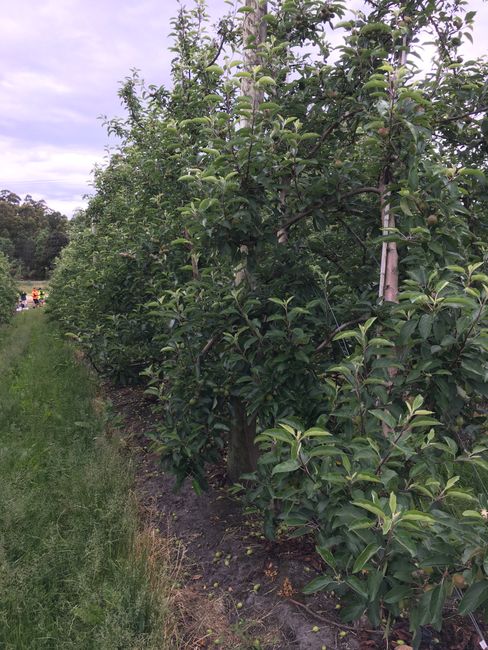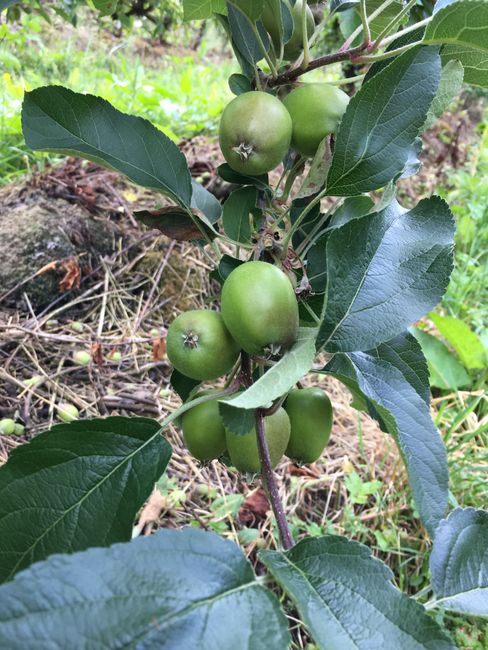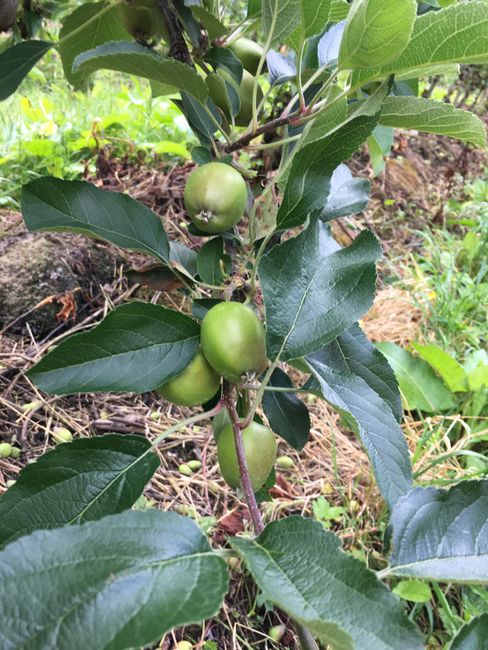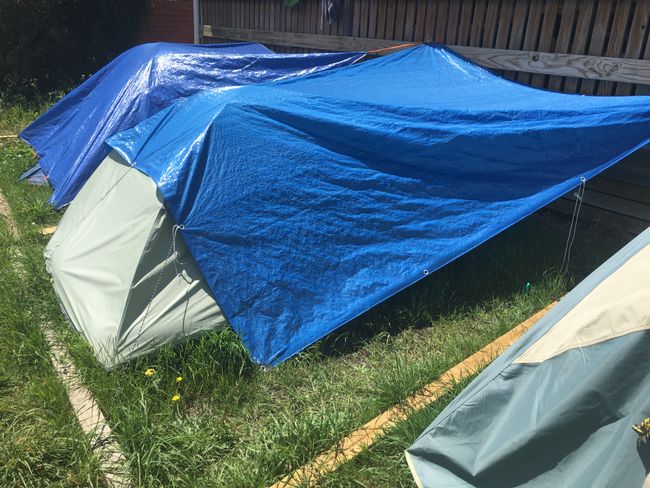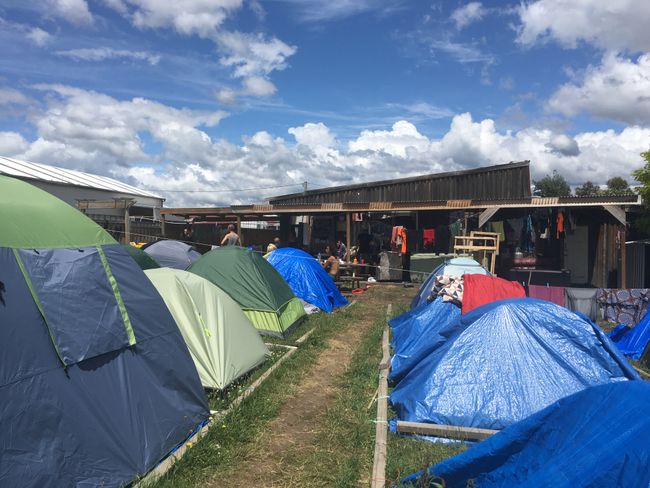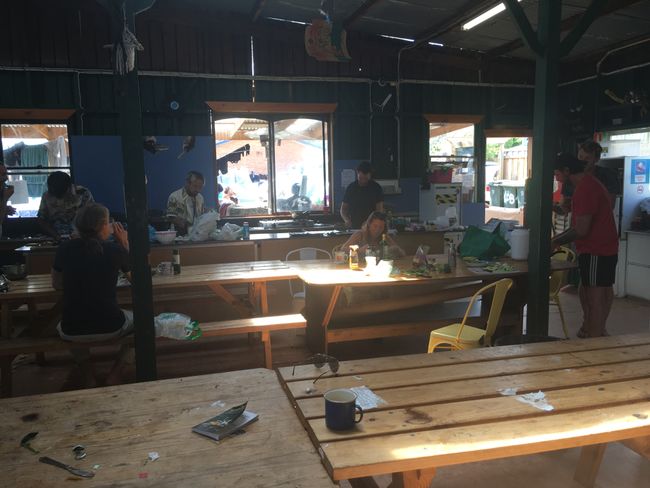Little Devil Backpackers
Lolomiina: 16.12.2018
Fa'asoa ile Newsletter
With great anticipation, we packed our backpacks on the morning of November 19th, strapped them on, and said goodbye to Tim, John, and Jake. From Deloraine, we hitchhiked all the way to the south to Hobart, passing through Launceston. From there, it took about half an hour to reach the Huon Valley!
We were picked up by all sorts of people: first, a young man who seemed to only be going to McDonald's. He dropped us off in Launceston, and we had trouble getting out of the city. After changing places and making alternative plans, an elderly German lady picked us up and cheered us up. She took us a few kilometers out of the city to the right road that leads directly to Hobart. Next, a woman rescued us from the scorching midday heat. She had just picked up two dog puppies in Launceston. It's her job to find them a new home. The two baby puppies were super cute and kept us company during the ride. Just before Hobart, we made a quick change. Flou hadn't even put his backpack back on properly when the next car stopped for us. This time it was a police officer. It was quite an experience riding with him. He told us a lot about Tasmania, the forests, and the mountains. We kept passing huge fields full of beautiful white flowers, opium, as he proudly told us. Tasmania is the only country where it's legal to grow opium, which guarantees a good position in the pharmaceutical industry. He gave us tips and ideas about what we can do in Hobart and gave us geographical references. Then we saw Mount Wellington, standing high and domineering over Hobart. We will now drive around it to reach our destination, Huon Valley. Hobart was built near the River Derwent (saltwater), and as it grew, the houses had to move to the other side of the river. Today, the two parts of the city are connected by a long bridge, which we unfortunately won't be crossing as we head southwest into the mountains. The last stretch to Huonville is taken by another woman who seemed strange at first but turned out to be very friendly and kind.
After a sunny day, we arrive at Little Devil Backpackers. Little Devil Backpacker consists of a large three-story building. In this building, there's the office, toilets, showers, and about 30 people from Vanuatu. They work half a year in Tasmania to send money to their families. Across from this building is another one that houses a large kitchen. In front of this building, there's a garden where we can camp. The first impression of the backpacker is rather modest. We have to sign a lot of documents and pay a high deposit, which is supposed to guarantee that we won't just disappear once the hostel finds work for us. Unfortunately, our super cool tent is too big for the marked squares on the lawn, so we have to buy a smaller tent. A dollar is charged for every hot shower, and the kitchen, floors, and surfaces are dirty and sticky.
So we pay everything and start setting up our tent. Other backpackers immediately come over, introduce themselves, offer help, and engage in good conversations. We are a well-mixed group of nationalities. There are several Japanese, a Swedish, a Scottish, an Italian, two Argentinians, a few French, and only one other German. In the evening, it gets quite chilly, and as we all sit by the campfire, I realize that I'm starting to feel at home. It feels good to be among backpackers again, I have forgotten how diverse, colorful, and witty the world is. In the first few days, we take care of the remaining paperwork: applying for a TFN (tax file number) and opening a bank account.
Then we start looking for work. We search for a whole week. Almost every day, we visit the surrounding orchards, send emails, and make phone calls. Just when we're about to give up, we find work at Hansen's, the largest apple and cherry farm in Tasmania.
We start apple thinning. Our task is to select the small apples. We pick off the small and double ones so that only the most beautiful one grows the largest. We have cardboard buckets strapped around our waist to collect all the picked apples. When the bucket is full, the apples are placed in a larger bin (wooden container). Hansen's then sells them to their competitor, Willie Smith, who makes cider from them. Normally, we should be paid hourly, but after one day, it's announced that we will now be paid per tree. The reason given is that some work very fast while others work very slowly.
And that's when it all started. With each passing minute, with each passing day, I begin to understand why this company has such a bad reputation among backpackers. We have to work very quickly to reach the minimum wage, and every time we go to a new block, they change the prices, and we have to negotiate a fair price for ourselves. It takes a lot of energy, which I would much rather invest in apple thinning. And when we finally get paid, half of it is missing. It seems to be an eternal struggle in Australia. Nothing seems as simple as in New Zealand, where everyone pays honestly and punctually.
We work a comfortable five-day week. On weekends and in our free time, we go to the beach with others, go hiking, and cook delicious meals together. I practice juggling a lot and make some progress. It feels good to work hard and still have so much time to learn something new and discover this wonderful country.
We buy a Toyota Corolla that promises a lot of fun and freedom. It's a bit strange to drive on the left side again at first, but we quickly get the hang of it.
As the weeks go by, the campground fills up every day. More and more people, and I slowly lose track. In the end, there are nearly 100 people. During peak times in the kitchen in the evenings, it's impossible to cook or even find a seat.
For the cherry season, we prefer to rent a house with others or find a slightly quieter backpacker. But so far, nothing has worked out.
Fa'asoa ile Newsletter
Tali
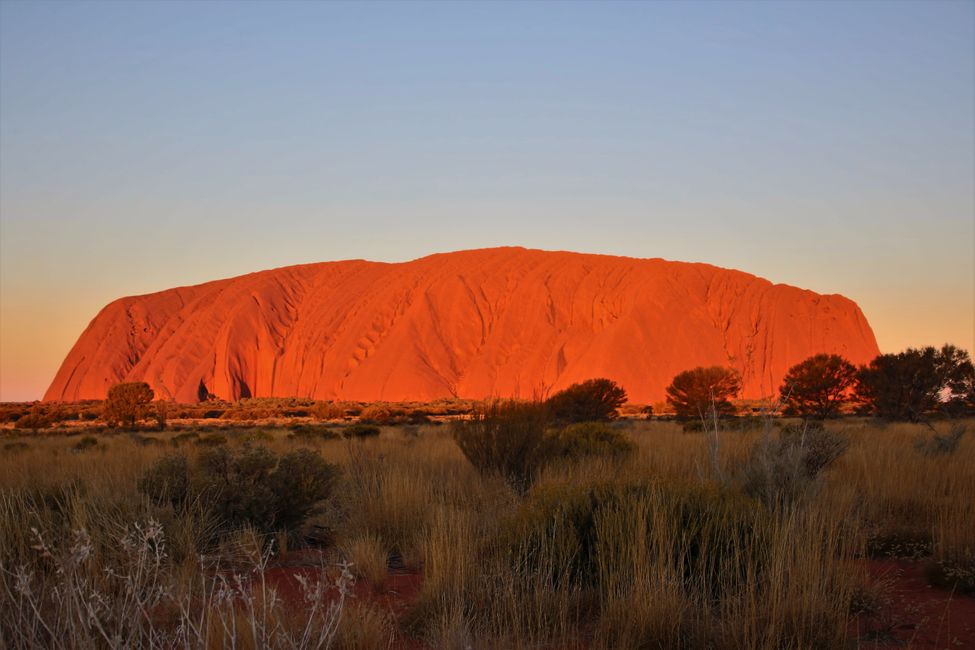
Lipoti o femalagaaiga Ausetalia
